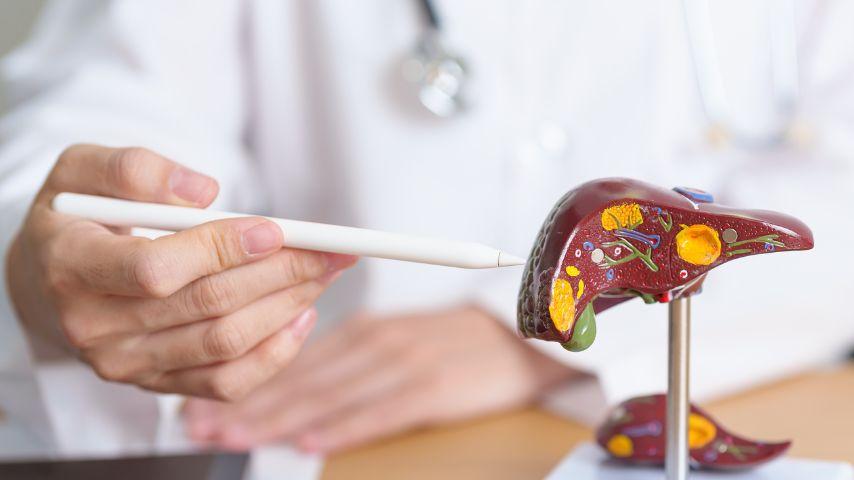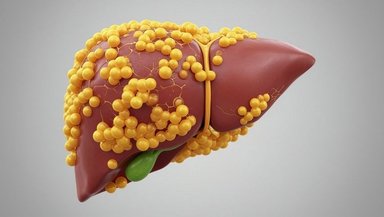Liver Transplantation : What You Need to Know

Liver transplantation is a life-saving surgical procedure performed to replace a diseased or failing liver with a healthy one from a donor. This complex procedure offers hope to individuals with end-stage liver disease, liver cancer, or acute liver failure, providing them with a chance at renewed health and longevity. In this comprehensive guide, we'll explore everything you need to know about liver transplantation, from the indications and evaluation process to the surgical procedure and post-transplant care.
Dr Suresh Raghavaiah, HOD & Sr Consultant - HPB & GI Surgery, & Multi-organ (Liver, Pancreas, Small Intestine) Transplant Surgery, emphasizes the transformative impact of liver transplantation, stating, "Liver transplantation offers a second chance at life for individuals battling end-stage liver disease. It not only saves lives but restores hope and vitality to patients and their families."
Understanding Liver Transplantation:
Liver transplantation is typically recommended for individuals with advanced liver disease that cannot be effectively managed with medical therapy or other interventions. Common indications for liver transplantation include cirrhosis, chronic hepatitis, alcoholic liver disease, autoimmune liver disease, primary biliary cholangitis, and liver cancer (hepatocellular carcinoma). Additionally, acute liver failure resulting from viral hepatitis, drug toxicity, or other causes may also necessitate urgent transplantation.
When do you require Liver Transplantation:
- Liver transplantation is indicated when the liver reaches a point of irreversible damage or dysfunction, compromising its ability to perform essential functions.
- End-stage liver disease, characterized by extensive scarring and impaired liver function, is a primary indication for transplantation.
- Liver cancer, particularly hepatocellular carcinoma, may require transplantation when conventional treatments such as chemotherapy or surgery are not viable options.
- Acute liver failure, resulting from viral hepatitis, drug toxicity, or other causes, may necessitate urgent transplantation to prevent life-threatening complications.
- Certain metabolic disorders, such as Wilson's disease, hemochromatosis, and alpha-1 antitrypsin deficiency, may progress to a stage where liver transplantation is the only treatment option to prevent organ failure and associated complications.
- In some cases, liver transplantation may be considered for autoimmune liver diseases, primary biliary cholangitis, primary sclerosing cholangitis, and other chronic liver conditions that do not respond to medical therapy or other interventions.
Indications for Liver Transplant:
The indications for liver transplantation vary depending on the underlying liver disease or condition. Common indications include cirrhosis, chronic hepatitis, alcoholic liver disease, autoimmune liver disease, primary biliary cholangitis, and hepatocellular carcinoma (liver cancer). Acute liver failure resulting from viral hepatitis, drug toxicity, or other causes may also necessitate urgent transplantation.
Types of Liver Transplant:
Liver transplantation involves two primary types, each with its own unique process and considerations:
Deceased Donor Liver Transplantation:
- In this type of transplantation, the liver is obtained from a deceased donor who has previously consented to organ donation.
- The donor liver is carefully procured and matched with a suitable recipient based on factors such as blood type, body size, and medical urgency.
- Deceased donor liver transplantation offers the advantage of utilizing a whole liver, which can be particularly beneficial for recipients with extensive liver disease.
Living Donor Liver Transplantation:
- Living donor liver transplantation involves the surgical removal of a segment of the liver from a healthy living donor.
- The donor liver segment is then transplanted into the recipient, where it gradually regenerates and assumes full functionality.
- Living donor liver transplantation offers the advantage of reducing wait times for transplantation and may be particularly beneficial for recipients with urgent medical needs or incompatible blood types with deceased donors.
Eligibility and Evaluation:
Before undergoing liver transplantation, candidates undergo a comprehensive evaluation to assess their overall health and suitability for the procedure. This evaluation includes medical history assessment, physical examination, laboratory tests, imaging studies (such as ultrasound, CT scan, or MRI), and specialized liver function tests. Additionally, candidates undergo psychosocial assessments to ensure adequate support and compliance with post-transplant care requirements.
Transplant Procedure:
During the liver transplantation surgery, the diseased liver (recipient liver) is surgically removed, and the healthy donor liver is implanted in its place. The transplant team meticulously connects the donor liver to the recipient's blood vessels and bile ducts, ensuring proper blood flow and bile drainage. The surgical procedure may take several hours to complete, depending on the complexity of the case.
Surgical Procedure:
Liver transplantation involves the surgical removal of the diseased liver (recipient liver) and its replacement with a healthy liver from a deceased or living donor. The procedure may be performed using either a whole liver from a deceased donor or a segment of the liver from a living donor (living donor liver transplantation). During the surgery, the donor liver is meticulously connected to the recipient's blood vessels and bile ducts, ensuring proper blood flow and bile drainage.
Post-Transplant Care:
Following liver transplantation, recipients require lifelong medical supervision and adherence to a comprehensive care plan. This includes immunosuppressive medications to prevent rejection of the transplanted liver, regular monitoring of liver function and drug levels, vaccination against infections, and lifestyle modifications to promote overall health and well-being. Recipients also undergo regular follow-up appointments with their transplant team to monitor graft function, manage complications, and address any concerns.
Outcomes and Prognosis:
Liver transplantation offers excellent long-term survival and quality of life for eligible candidates, with the majority of recipients experiencing significant improvement in symptoms and overall health. However, the success of liver transplantation depends on various factors, including the underlying liver disease, the presence of comorbidities, surgical technique, post-transplant care, and adherence to medical therapy. With advancements in surgical techniques, immunosuppressive medications, and transplant protocols, the outcomes of liver transplantation continue to improve, offering hope to countless individuals worldwide.
Conclusion:
Liver transplantation represents a remarkable achievement in modern medicine, providing a lifeline to individuals with end-stage liver disease and liver failure. By understanding the indications, evaluation process, surgical procedure, and post-transplant care involved in liver transplantation, patients, caregivers, and healthcare providers can navigate this complex journey with knowledge and confidence. Through ongoing research, innovation, and collaboration, the field of liver transplantation continues to evolve, offering hope and renewed vitality to those in need of a secon































